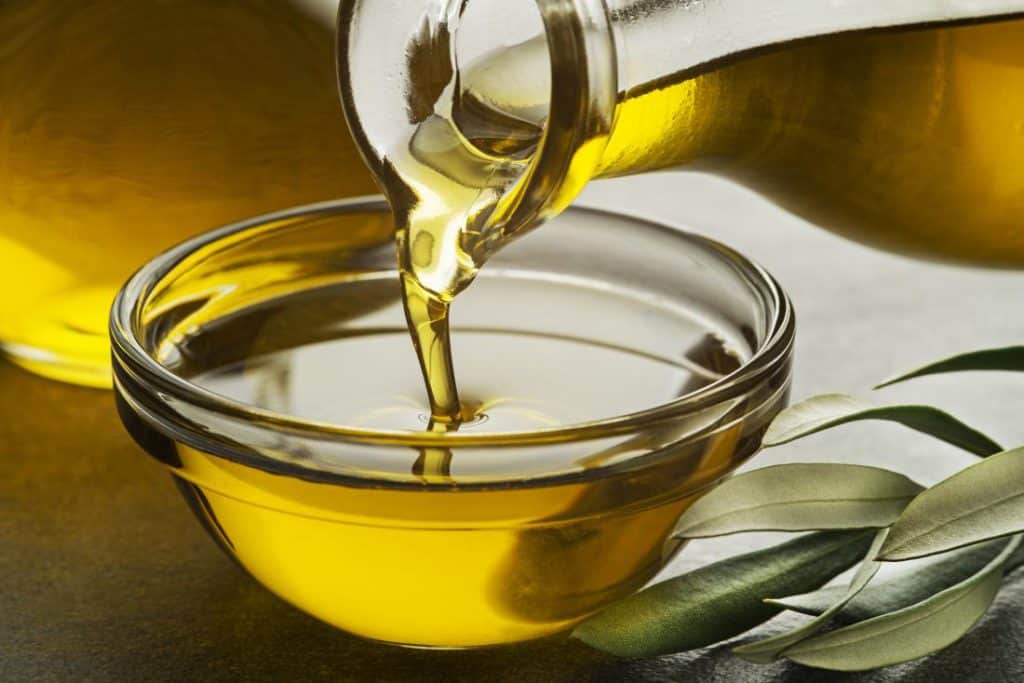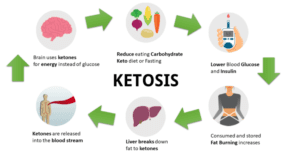4 Best Keto-Friendly Cooking Oils that you are looking for!
Keto is a low-carb, high-fat diet, but sometimes the “high-fat” part can be challenging, especially if you’re new to keto. To ensure you’re getting enough of this macronutrient, you can be more generous with the cooking oil in your diet. However, it can be difficult to know which cooking oils are best for keto. All oils are full-fat and contain no carbohydrates, but some are better than others from a health standpoint. All vegetable oils are zero carbs and zero protein, making them the purest source of fat. However, that doesn’t mean that everything in the cooking oil department can be considered good keto oil.
Although you can lose fat on the ketogenic diet, regardless of the fats you consume, the oils you use play a crucial role in ensuring optimal health and wellness and sustained ketosis. Since fat will be your primary source of energy, choosing the right oils can be the deciding factor between a healthy or unhealthy ketogenic diet. The options recommended below should only be used in combination with high-fat keto foods; Even the healthiest of oils should never be your primary source of calories on a ketogenic diet. More specifically, it’s best to use keto oils to add a little extra fat to your low-carb meals when cooking, roasting, baking, and basting. Most of your calories should come from minimally processed meats, seafood, cheese, low-carb vegetables, nuts, and seeds.
4 best Keto-Friendly Cooking Oils
-
Coconut Oil
In India, we often use coconut oil for our hair and skin. But especially in North India, it can be shocking to learn that you can cook with coconut oil. Well, coconut oil, a vegetable oil made from coconut meat, has a relatively low smoke point of 350 degrees Fahrenheit. It is suitable for slow-cooking or baking, so one could make choices during their ketogenic diet recipes. One downside to coconut oil, however, is that it imparts a coconut flavor to foods cooked with it. Additionally, a recent review found that consuming coconut oil resulted in significantly higher LDL (bad) cholesterol. If you want flavorless coconut oil, look for one that says “refined”. However, this product is more processed than unrefined coconut oil.
-
Sesame oil
Sesame Oil is a seed oil with a rich, smooth flavor and nutty aroma that’s heart-healthy, all-natural, and packed with a healthy dose of essential fatty acids. This oil has a medium-high smoke point, which means it can reach relatively high temperatures before it starts to burn and smoke. When the oil starts to burn at its smoke point, the nutrients in the oil are broken down.
It’s important to pay attention to the smoke point and proper use of each type of oil to ensure not only that you’re getting the right nutrients from both the oil and your food, but also to avoid the ignition that decomposed oils can create in your bodies and can trigger bodies. Use nourishing sesame oil to sauté or fry your keto foods, or add to sauces and dressings you eat with your food for an even better supply of healthy fats and nutrients.
-
Ghee
Coconut oil is made up of medium-chain triglycerides that have been shown to boost metabolism and stimulate ketosis. MCT oil is derived from coconut oil. Due to its high concentration of lauric acid, coconut oil is solid at room temperature and has a longer shelf life than most unsaturated cooking oils. It may also have antibacterial and antifungal benefits. The result is a flavorful clarified butter that solidifies at room temperature.
Ghee is often used in Indian cooking. Because milk proteins are removed, some people who are sensitive to dairy products report that they can eat ghee with no problems. However, if you have a milk allergy, you should avoid ghee in case it contains traces of milk proteins that are causing your allergy. Ghee doesn’t burn as easily as butter, so it’s better for cooking over high heat. Coconut oil has a low smoke point (about 350°F), making it better for slow cooking. Coconut oil pairs well with seafood and baked goods, and is traditionally used in many Southeast Asian recipes.
-
Extra Virgin Olive Oil
With a low smoke point and incredibly healthy levels of monounsaturated fats and antioxidants, extra virgin olive oil is a cold-pressed, unrefined oil that retains much of the flavor and nutrients of the olives it’s derived from. Not only is this virgin oil rich in healthy fats to suit your ketogenic diet, but it is also complex, robust, rich, and flavorful, adding notes of fruity, buttery, and herbaceous flavors to your keto cooking creations. Extra virgin olive oil has a low smoke point, but avoid using it for high-heat cooking or frying. Instead, incorporate it into your keto dressings, marinades, and snacks. It also tastes delicious with eggs, meat and vegetables. It pairs well with virtually all savory keto recipes and is filled with health-promoting fats and antioxidants.
Conclusion
The best cooking oils for the ketogenic diet are olive, avocado, and coconut oil. Animal fats like butter, ghee, lard, and tallow are also good choices. Edible oils and fats are important components of a largely fat-based diet. Choosing only the best of these ingredients is important to get the most out of your ketogenic diet.
While all cooking oils are carbohydrate-free, industrial seed oils like soybean and corn oils are highly processed and can release harmful chemicals into the air and food when heated. Whatever your diet, you should choose cooking oils that require the least amount of processing. They are all unrefined, which is important when choosing an oil that has been the least processed. In general, try to avoid vegetable and seed oils, although sesame oil is perfect for Asian foods. And for maximum benefit, it’s a good idea to include a combination of different oils and fats in your ketogenic diet to support overall health and ketosis.









